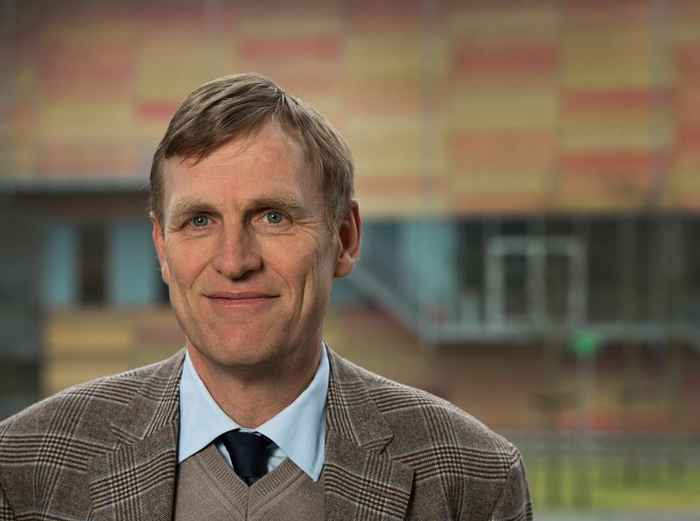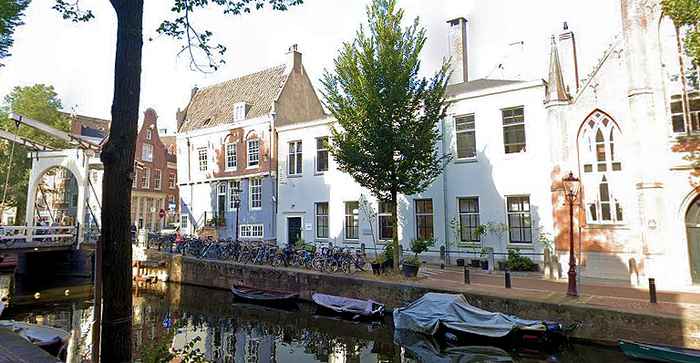Executive summary
Annual Report 2021
In 2021, we have continued our journey in enhancing cross-disciplinary collaborations and strengthening our institute according to the strategic choices made in the preceding years. As was expressed by the Scientific Advisory Committee (SAC) that presented its mid-term evaluation report in January 2021, it takes time and effort to realize the full potential of the new strategy - even when the starting point is a flourishing institute of high quality and innovative research.

Specifically under the COVID-conditions that marked most of the year, we observed that bringing everyone on board and building new connections is quite a challenge. Also in other aspects we had to deal with the COVID-pandemic. As chemistry laboratories are very safe working environments we could continue our experimental work, albeit with special precautions. Our special thanks go to the institute's technical support staff and the cooperation of all staff and students.
As a follow-up of the SAC advice we installed a Diversity and Inclusion committee with members from all parts of the institute. We are committed to a diverse and inclusive workplace in which everyone is treated with dignity and respect.
The researchers at our institute were very successful in acquiring external grants. Among many others are the high-impact personal grants of Dr Chris Slootweg (Vici), Dr Fatemeh Hashemi (Veni) and Dr. Luca Capaldo (Marie Curie Fellowship). There were also large consortia projects (funded by H2020, CBBC, RVO and others), and a number of direct research contracts with industrial partners started. HIMS acquired a project in UvA’s new ‘Data Science Center’ and hosts the new UvA Research Priority Area ‘Energy transition through the lens of Sustainable Developments Goals’ (Enlens), led by Prof. Bob van der Zwaan. Also two projects were acquired within the Science & Design Zero Waste program of the Faculty of Science.
A total of 21 young researchers obtained their PhD at our institute. Dr Thierry Slot, Dr Alberto Pérez de Alba Ortíz and Dr Tessel Bouwens received their doctorate with the distinction 'cum laude'. A number of 313 appealing publications arose, including 21 joint publications from collaborating HIMS groups, often involving interdisciplinary collaborations across the different HIMS themes.
We have seen a number of noteworthy changes in the HIMS staff. Prof. Peter Schoenmakers of Analytical Chemistry formally retired in 2021 after a very successful career in both industry and academia. He will stay, however, active in the years to come, guiding his final generation of PhD students and helping the new and young staff in Analytical Chemistry with their teaching duties in the successful Master program Analytical Sciences. Dr Steen Ingemann also formally retired. We -and many students- are happy that he too is continuing his educational activities in the coming year. Dr Tristan Bereau left the institute to pursue a career outside academia. At the same time, HIMS welcomed three new professors by special appointment: Prof. Katrien Keune (main affiliation Rijksmuseum Amsterdam), Prof. Wim Noorduin (main affiliation AMOLF) and Prof. Elizabeth von Hauff (main affiliation VU Amsterdam).

Also in 2021 quite a few prestigious prizes were granted to HIMS researchers. Prof. Tim Noël received the Golden Medal of the Royal Netherlands Chemical Society KNCV as well as the IUPAC ThalesNano Prize for Flow Chemistry. Dr Bob Pirok and Prof. Peter Schoenmakers were included in the international Analytical Powerlist. Dr Klaas van Leest received the Dick Stufkens Prize of the Holland Research School of Molecular Chemistry for his PhD thesis and a Rubicon grant from the Dutch Research Council NWO. The ’Sisters in Science’ initiative of our colleagues Lotte Schreuder, Mimi den Uyl and Noor Abdulhussain received a lot of attention on national television and social media. In December, they received the NWO Diversity Initiative award.
The valorisation of HIMS research and knowledge had several highlights worth sharing. Prof. Joost Reek started a first pilot with Open Kitchen Labs together with Dr Monalisa Goswami of our spin-off company Spark904 . This will be a service at Amsterdam Science Park where spin-offs can rent a laboratory facility with basic equipment and consumables. Unlike already existing services labs, experiments can start here immediately and rental periods can vary from a few days to multiple months. The first online edition of the annual Molecular Simulation course attracted 100 international participants (up from 60 participants in the years before). This year the Amsterdam Centre for Electrochemistry (Amcel) organized a successful first symposium. In the Amcel consortium, academic and industrial partners focus on redox chemistry for a zero-waste economy.
Finally it is nice to mention that the building at Groenburgwal 44 in Amsterdam, where our namesake Prof. Jacobus Van ’t Hoff did his Nobel prize winning research in the late 19th century, was named National Chemical Heritage by the Royal Netherlands Chemical Society KNCV.